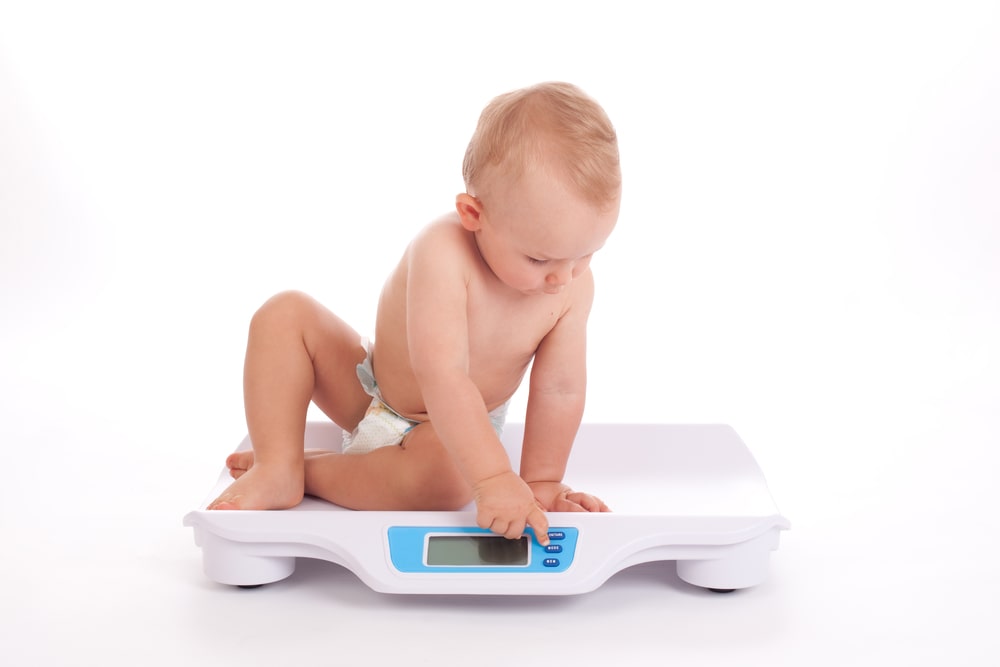Weighing a baby at home is relatively simple. You do need to know how to do it, and the best time to do it, to make sure that you get an accurate weight. Once you get the hang of it, though, you’ll be able to do it without a second thought.
The Importance Of Weighing Your Baby At Home
Most first time moms will leave this up to their doctor, but that’s not always the best idea. Pediatrician check-ups are scheduled every few months, and you’ll need to know what your baby weighs in between those check-ups.
If Your Little One Is Sick, They Need Their Weight To Call In Medicine
How much medicine your baby is supposed to take depends on how much they weigh. If you are forced to go off what the doctor said at your little one’s checkup two months ago, you might not get an appropriate dosage.
If the weight is too low, you’ll give your baby less medicine than you should. This will result in the medicine not being effective. If it’s too high, you could give your little one too much medicine, which can be dangerous.
Chart Their Growth
It’s fun to watch how much your little one grows over time. When you only get to see this at the doctor’s office, it’s not as fun.
Instead, you can chart their growth and mark it in a baby book for every month of their first year! Years later, you’ll look back on that homemade growth chart with fond memories.
Everyone Wants To Know How Much Your Baby Weighs
It’s the first thing that everyone asks. Every time a family member or even a stranger holds your baby, they instantly seem to want to know how much they weigh.
It’s like the baby version of asking how old an older child is or how tall they are. Trust me, it’s horribly awkward when you don’t know the answer to that question.
Because I’m so young, people assume that my grandson is my son in public, and they ask a lot. I do not always know how much he weighs…
View in gallery
You’ll Know When They’re Losing Weight
This is one of the most important reasons that you’ll want to be able to weigh your baby. If they suddenly become a fussy eater, have feeding problems, or get sick you will need to know if they begin to lose weight.
If babies lose too much weight, it can involve a stay at the hospital.
However, if you know how much your baby weighs and contact your pediatrician when they start to lose a pound, you can figure out a way to help them stop losing weight before it becomes an emergency.
How To Weigh Your Baby At Home
When you’re weighing your little one at home, there are a few things you’ll need to keep in mind. There are different methods you can use to weigh your little one.
You’ll also need to keep in mind the time of day because your baby’s weight actually fluctuates throughout the day.
Methods To Weigh Your Baby At Home
There are various methods that you can use to weigh your baby at home. One method doesn’t necessarily work better than another, so you can use whichever one works best for you and your baby.
Purchase An Infant Scale
This is not the most cost-effective option, but it is the easiest. Infant scales weigh babies in both pounds and ounces so you’ll get a more accurate reading.
They also don’t require any math or effort on your part. Simply place the baby on the scale, and you’ll know their weight.
[amalinkspro type=”showcase” asin=”B07CWRV3S3″ apilink=”https://www.amazon.com/dp/B07CWRV3S3?tag=mominformedcom-20&linkCode=osi&th=1&psc=1″ new-window=”true” addtocart=”false” nofollow=”true” sc-id=”4″ imgs=”LargeImage” link-imgs=”false” specs=”HIGH ACCURACY MEASURE : We use high precision sensors to provide accurate and stable readings; the baby scale’s Measure range from 0.1lb-220lb (50g-100kg); This toddler scale helps to ensure your baby is getting the right amount of food, or provides a way to monitor their growth~~~MULTI-FUNCTION DIGITAL SCALE : The Toddler Scale can be used for Infant, Child, Adult, even the Baby Pets. With the height measurement inside the tray ,this scale can also read the baby’s height.” btn-color=”#ff9900″ btn-text=”Buy on Amazon” alignment=”aligncenter” hide-prime=”0″ hide-image=”0″ hide-price=”0″ hide-button=”0″ width=”750″]Baby Scale, Multi-Function Toddler Scale[/amalinkspro]
Using A Traditional Scale
You can use a traditional bathroom scale like the one that you more than likely already have at home. To do this, weigh yourself first. Then, weigh yourself holding your baby.
Subtract your weight from the total weight of you and your baby on the scale.
This will not give you a weight in ounces, but most parents only need to see the pounds for babies. You can use this same method to weigh your baby in their car seat, too.
What Time Should You Weigh Your Baby?
Time is another important factor to keep in mind. Everyone’s weight fluctuates throughout the day. Usually, this is only ounces so we don’t notice it on ourselves.
Because babies are so little, and their weight is typically measured in both pounds and ounces, it’s going to show up on the scale.
Weigh Your Baby In The Morning
Weighing your baby in the morning before their first feeding will give you an accurate picture of how much they weigh. This is before they have food and poop in them as their digestive system will clear out overnight.
Weigh Your Baby At The Same Time Every Time
If you’re charting your baby’s growth, or want to know if they’re losing weight, weigh them at the same time each day.
This will make sure that the extra ounces for food and bowel movements that have yet to come out are accounted for each time you weigh them, so you’ll know that if they lose weight it’s not because of normal fluctuations during the day.
How Often Do You Need To Weigh Your Baby?
If you’re weighing your little one because you’re breastfeeding and need to know how much they are eating, you’ll do it before and after feeding.
To chart their growth, weighing them once a week is fine. If you’re concerned that they are losing weight, once daily while they are sick is a great idea. Do not weigh your little one multiple times throughout the day.
When you’re concerned about your baby, it can be easy to obsessively weigh them, but you’ll drive yourself crazy as you watch their weight move up and down by a few ounces throughout the day. Take a deep breath, and stick to once a day at the most.
In Conclusion
Weighing your little one at home is a great idea! Make sure that you use a method you’re comfortable with, like an infant scale, and have fun watching your baby grow!






